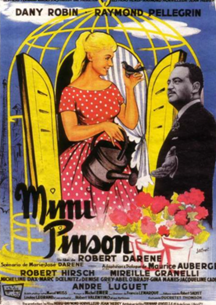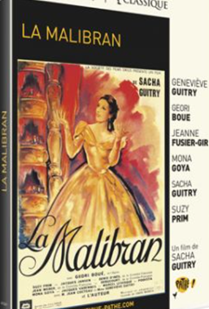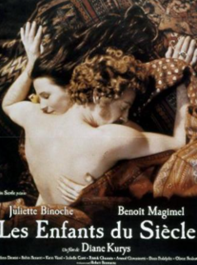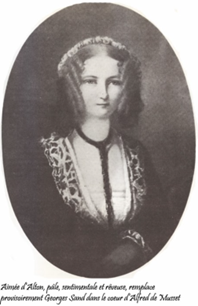
History
If you want to know more….
The Manoir de la Vaudourière is a place steeped in history because it was the hunting estate of Alfred de Musset’s grandfather.

Alfred de Musset said:
“To succeed, remember these three maxims: to see is to know, to want is to be able, to dare is to have.”
“Life is a sleep, love is the dream,
And you will have lived, if you loved.”
“All men are liars, fickle, false, talkative, hypocrites, proud and cowardly, despicable and sensual; all women are perfidious, artful, vain, curious and depraved; the world is only a bottomless sewer where “The most shapeless seals crawl and writhe on mountains of mire; but if there is one thing in the world that is holy and sublime, it is the union of two of these beings so imperfect and so dreadful.”
Alfred de Musset is a French poet of the Romantic period, born in 1810 and died in 1857. From the age of 17, he frequented the poets of the Cénacle of Charles Nodier and published at the age of 19, his first poetic collection which revealed his talent. He then begins to lead the life of a “debauched dandy”.
He published pieces in La Revue des Deux Mondes, before grouping them together in a volume under the explicit title “A Show in an Armchair”, a show which was not intended to be performed. He also became known for his play “Les Caprices de Marianne”, his collection of poems “Les Nuits” and his work “La Confession d’un Enfant d’un Siècle”.


We wanted to name our accommodation after women who marked the life or work of Alfred de Musset.

Mimi Pinson was born from the imagination of Alfred de Musset “Mademoiselle Mimi Pinson” appeared in a collection of short stories about characters from Parisian life. The author portrays two young girls of modest means, Mimi Pinson and her friend Rougette, who work in sewing. These grisettes, as they are called, are depicted as flirtatious, cheerful, carefree and frivolous young girls, but very supportive and generous. This is how Mimi Pinson is ready to pawn the only possession she owns: her dress.
Mimi Pinson carries a rose,
A white rose on the side.
This flower in his heart blooms,
Landerirette!
It’s joy.
When a good supper wakes her up,
She brings out the song
From the bottle.
Sometimes he tilts his ear,
Mimi Pinson’s hat.
The singer Maria Malibran is undoubtedly one of the most famous singers in the history of opera. She was very beautiful and her beautiful eyes helped to mark the spirits of the time. Alfred de Musset was greatly in love with it.
Do we have to lose our dearest heads again,
And come crying to close their eyelids,
As soon as a ray of hope shone in their eyes?
Is the sky of its chosen ones becoming envious?
Or should we believe, alas! what our fathers said,
That when you die so young you are loved by the gods?
Extract from the Stances that Musset, very affected, dedicated to La Malibran. The young singer died in 1836, at the age of 28, following a fall from a horse in England.


He met George Sand in 1833 with whom he became romantically involved and left for Italy. Their turbulent relationship ended two years later. During this relationship, he wrote his masterpiece, a romantic drama, “Lorenzaccio”, as well as his best-known play: “One does not kid with love” (see also the film “Children of the Century” ). In 1859, George Sand published “She and Him”, an autobiographical epistolary novel. She reveals in particular the heautoscopy from which Alfred de Musset suffered, a form of depersonalization which explains the hallucinatory nature of “December Night”.
As for Aimée d’Alton, she could have become his wife by offering Musset, a fickle poet, her heart and all her love. She wants to tear him away from his life of disorder, inspire him to a great work, give him back the taste for the work he has lost. Conquered, the poet set to work and in 1837, he published “Le Caprice” in the “Revue des Deux Mondes”. Aimée is happy and triumphant, because she finds there an anecdote that concerns her but Alfred gets tired and returns to his life of debauchery. Aimée married Alfred’s brother, Paul, a few years after the poet’s death.

Depressive and alcoholic, at age 30, Alfred de Musset wrote less and less, but received the Legion of Honor in 1845 and was elected to the French Academy in 1852.
Died at the age of 46, almost forgotten, he was rediscovered in the 20th century and considered one of the great French romantic writers. His theater and lyric poetry show extreme sensitivity, a questioning of purity and debauchery, an exaltation of love and a sincere expression of pain.

Lieu-dit La Vaudourière
41360 LUNAY
Téléphones
09 88 77 36 58
06 07 83 12 81
Christophe : 06 88 34 37 31

